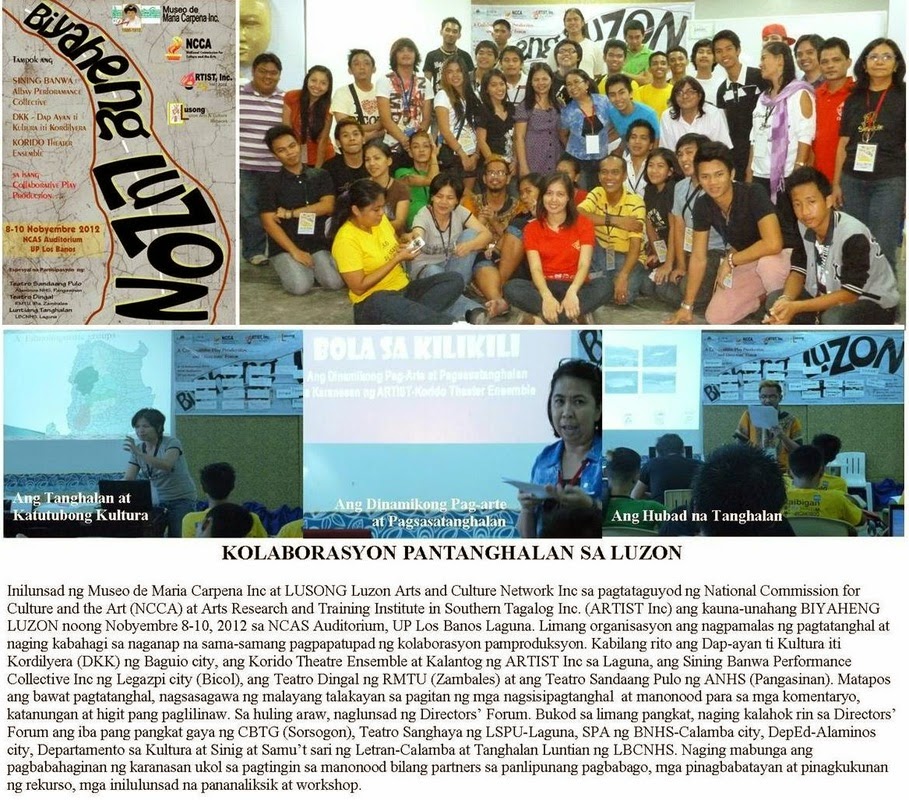
Singing Your Way This Holiday Season!
Los Baños, Laguna -- Seeing the need for children's songs that are up-to-date and reflect the sentiments of Filipinos, ARTIST Inc's children's performance arm, CLAP, together with Kalantog, will be launching its first-ever Christmas Album entitled Regalo on December 9, 2012.
It was late 2009 when the creation of songs for the album began. Edward Perez, Executive Director of ARTIST Inc, started collaborating with Kalantog for the creation of songs for arts and performances training of children from various elementary schools. The songs were later on developed towards a more focused theme that most Filipino children can relate to -- Christmas.
Featuring 14 all-Filipino original songs, the album Regalo talks about Filipino children, their families, their communities and the society & culture which they belong to. It is the second album created under the joint forces of Children's Literature, Arts & Performances (CLAP) and Kalantog.
The album launch will be held at 3pm this coming Sunday, at the office of ARTIST Inc at 2558 Carbern Village, Anos, Los Baños, Laguna. Come and join us! Admission is free.








